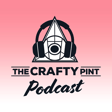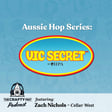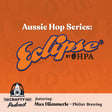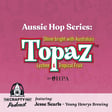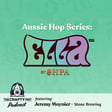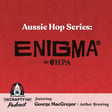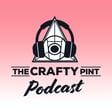
Innovative Off-Grid Brewing On The Limestone Coast
We return to normal programming – temporarily at least ahead of our GABS Hottest 100 Countdown livestream – for Episode 028 of The Crafty Pint Podcast, featuring one of the interviews we recorded on the road in South Australia in late 2024.
That said, it's arguably a little harsh to refer to Loophole Brewing as normal. Sure, it's a brewery that makes beer, but there's more to distinguish Loophole from your run-of-the-mill breweries than most. The entire operation is off grid. It's based on the grounds of a winery (but is no token beer brand designed to offer a modicum of choice at the cellar door). They grow barley they've used in their beers. They've won trophies for beer-wine hybrids and beer featuring local saltwater, and fermented the winery's grapes with nothing but Brettanomyces.
In short, there was plenty to talk about when we pulled up at Cape Jaffa Wines – the first to plant vines on this stretch of the Limestone Coast – half an hour north of Robe.
We were there to catch up with Tom O'Reilly, head brewer and also the man who designed and built the brewery for the Hooper family, the pioneers who saw the potential for producing wine in the region back in the 1990s.
As well as discussing the brewery and winery's innovative and sustainable approach and regular cross-pollination of ideas and ingredients, we chat about Sunlight Liquor – Tom's mead brand, making a positive impact on the wider beer industry, the importance of educating drinkers, and how a mishap on his first night shift at Stone & Wood led to the creation of a Molly Rose favourite.
Prior to the chat with Tom, we look at some of the positive news stories of the past week, including the imminent arrival of a Bridge Road bar at Melbourne Airport – hot on the heels of a Stone & Wood bar opening at Sydney Airport, the acquisition of Port Mac brewery Moorebeer by its long-term head brewer, and the arrival of Subculture Brewing in Brunswick.
We've enjoyed a great start to our campaign shining a light on good beer citizens, "Have you done a Rallings?", while applications are now open for this year's Young Henrys IWD Brewing Scholarship supporting women and non-binary individuals aiming to get into the industry too. This week's episode also features a new segment featuring Steve "Hendo" Henderson of Rockstar Brewer with tips on brewing better beer.
Start of segments:
- 12:43 – Tom O’Reilly (part one)
- 29:43 – Rockstar Brewer
- 35:28 – Tom O’Reilly (part two)
Relevant links:
- Loophole Brewing
- Cape Jaffa Wines
- Bridge Road Brewers Land At Melbourne Airport
- Brewer Buys Brewery
- Who Brews Subculture Beers?
- Young Henrys IWD Scholarship
- Have You Done A Rallings?
- GABS H100 Countdown Livestream
- Rockstar Brewing Academy
- The High Country Hop
- IBD 2025
To find out more about supporting the show or otherwise partnering with The Crafty Pint, contact craig@craftypint.com.
